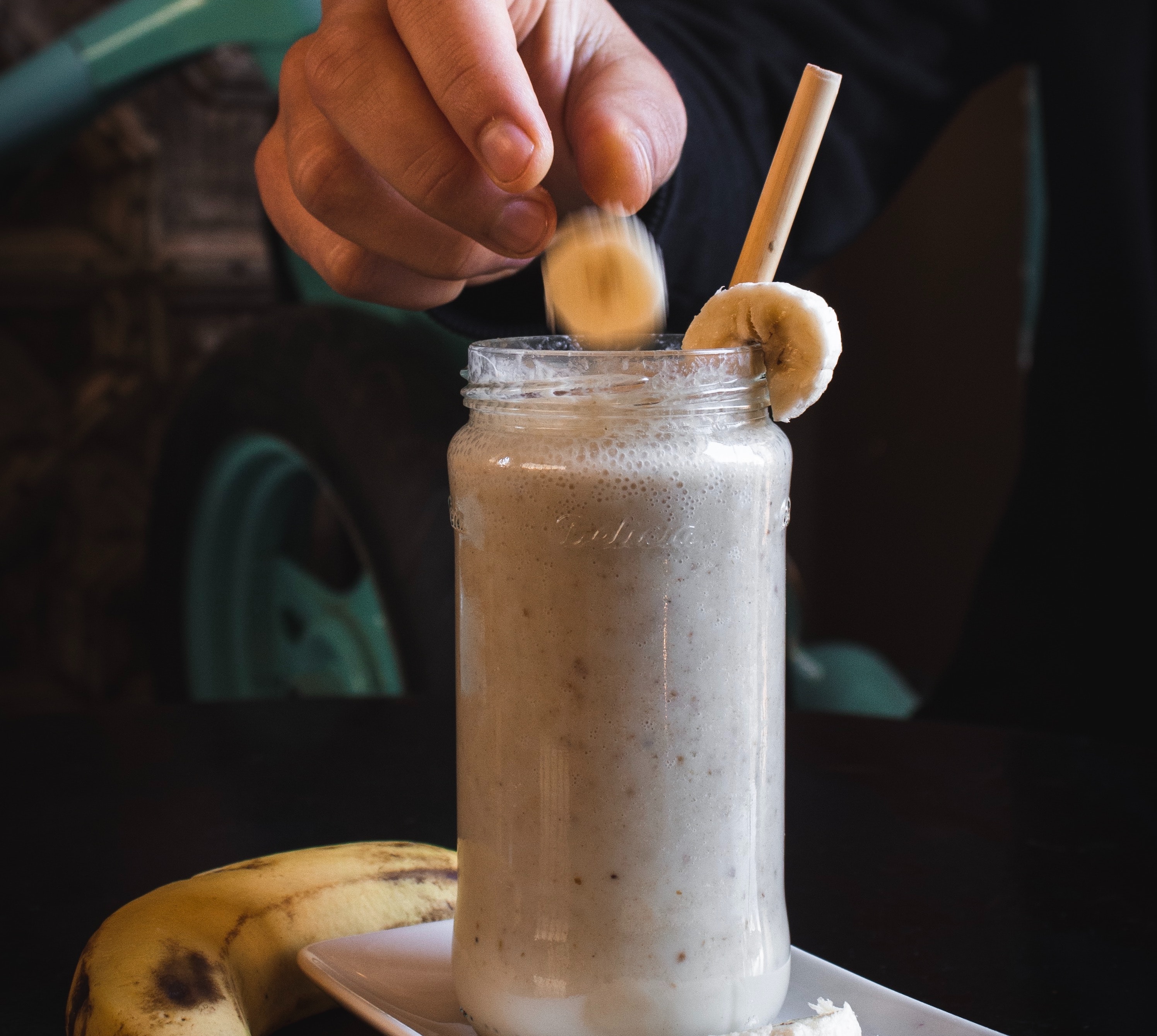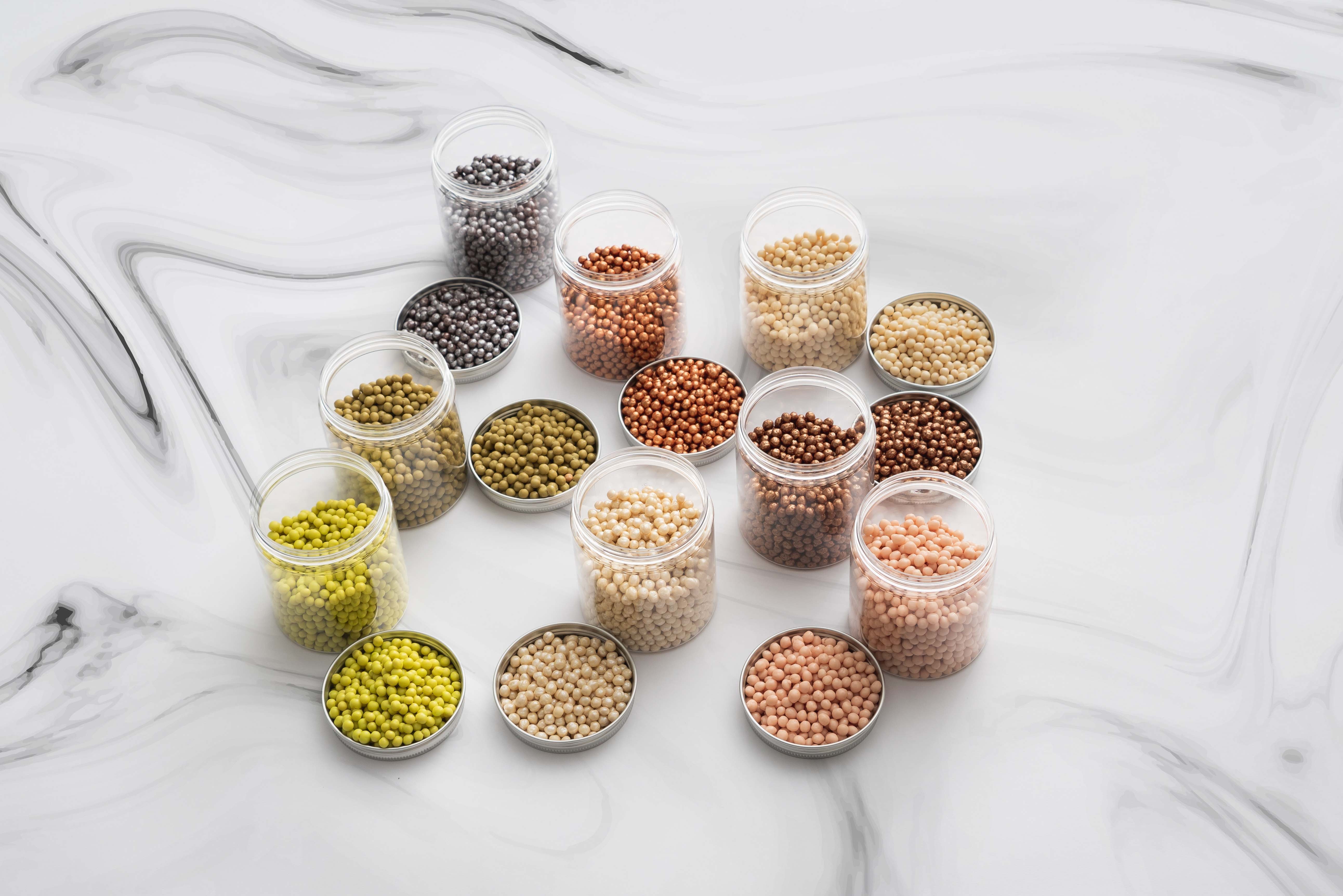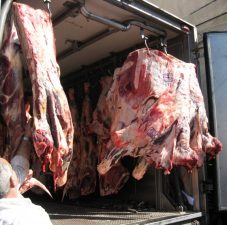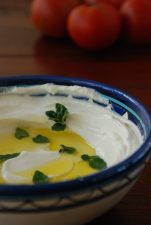Soy has been touted as a source of perfect protein for decades. It was believed that soy prevents breast cancer and heart disease. Women built soy into their diets as a nutritional shield against breast cancer. Soy-based baby formula was hailed as a convenient and healthy alternative to mother’s milk. In 1999, the FDA authorized a claim that soy protein reduces coronary heart disease.
But newer studies have reversed those theories. What we are seeing now is that soy, and especially unfermented soy and its derivatives, inhibits absorption of vital minerals and protein, disrupts hormone function, and actually increases the risk of cancer. Green Prophet has been pondering the effects of soy in human diet for years (see our article Oy! Soy! and watch us shudder at Soylent).
So what’s wrong with soy?
The FDA is now proposing to revoke the soy health claim authorization. Susan Mayne, director of the FDA Center for Food Safety and Applied Nutrition, stated in October 2017,
“We are proposing a rule to revoke a health claim for soy protein and heart disease. For the first time, we have considered it necessary to propose a rule to revoke a health claim because numerous studies published since the claim was authorized in 1999 have presented inconsistent findings on the relationship between soy protein and heart disease.”
Make your own oat milk at home!

Oat milk may the only option after milk and soy has let us down. We tried almond milk but that was killing the bees. Read here for our recipe
Soy and its derivatives can cause mineral and protein deficiencies. Lignins and phytic acid are substances present in all grains and pulses, but soybean has the highest levels of them. These substances are known as anti-nutrients, because they decreases the body’s absorption of vitally important minerals and vitamins, like zinc, copper, and magnesium; iron, calcium, vitamin D and the B vitamins.
Soybeans also contain enzyme inhibitors that can block absorption of the proteins in food. The Western diet, so often dependent on industrially prepared foods, is already deficient in minerals and high-quality proteins. Consuming soy reduces your body’s ability to absorb nutrients and puts your health even more at risk.
Soy is proven to inhibit thyroid function. In children, this can block normal growth. In adults, low thyroid function causes fatigue, irritability, weight gain, and problems throughout women’s reproductive and post-menopausal life. Iodine deficiency is known to weaken thyroid activity; given that 1 billion people worldwide are iodine-deficient, one wonders how at much additional risk a diet high in soy puts them.
Soy is rich in phytoestrogens, which are substances with weak estrogenic or antiestrogenic activity. Phytoestrogens mimic, or in some cases suppress, the body’s natural hormone production. Soy overload makes the body produce more estrogen. Consequently, girls raised on soy hot dogs, soy ice cream, and the myriad varieties of soy in their food, are attaining puberty earlier every year. It used to be unheard of for a 9-year-old child to have adult breasts and to menstruate. In industrially developed countries, it’s common now. Consider that these young children are exactly that – young children who are not prepared to cope with sexual maturity in any way. This potentially has far-reaching consequences not only in their personal lives, but in society as a whole.
As for soy overload in boys, it’s now suspected of disrupting normal male hormone production, leading to delayed adolescence.
Most soy is genetically modified and treated with pesticides
More than 80% of the world’s soy crops are genetically modified. Monsanto, the world’s largest agricultural corporation, modified soy to survive repeated exposure to pesticides in 1994. Monsanto now sells GM soy paired with Roundup pesticide, whose main ingredient (glyphosate) is proven to be carcinogenic. Roundup also destroys valuable organic compounds in soil, so crops grown on that soil are less nutritious.
Soy also is a common allergen
Allergies and food sensitivities are rising dramatically, worldwide. The Food and Agriculture Organization of the United Nations includes soy in its list of the eight most significant food allergens, and has identified at least 16 potential soy protein allergens.
Baby formula should never be made with soy
The darkest side of soy consumption lingers in what should be the most innocent of foods: baby formula.Natural nutritionist Dr. Eric Osansky states on his blog,
“Infants on soy formula consume approximately 6–9 mg of isoflavones (one of the phytoestrogens) per kg. of body weight per day, an amount, when adjusted for body weight, that is up to seven times higher than for adults meeting the FDA soy consumption guideline (our italics)…
Just about all animal studies have demonstrated that the manipulation of estrogen during specific critical windows of development throughout gestation and early infancy leads to a myriad of adverse health outcomes.
This includes malformations in the ovary, uterus, mammary gland and prostate, early puberty, reduced fertility, disrupted brain organization, and reproductive tract cancers… A 2008 study consisting of 694 girls in Israel found an increased prevalence of breast buds in 2-year old girls who were fed soy formula as infants.”
What about soy versus breast cancer?
A study done at the Memorial Sloan Kettering Cancer Center in 2014 cautiously concluded that soy protein could potentially speed up the progression of breast cancer in certain groups of women, and certainly reduce the effects of certain cancer medications.
The myth of the Japanese diet
You might hark back to outdated beliefs that insist, “The Japanese eat lots of tofu and soy, and their cancer rates are low.” Neither assumption is true. The traditional Japanese diet includes a great variety of foods; tofu and other soy-derived foods account for no more than a daily ounce. In recent decades, though, Japanese youngsters have been eating less traditional and more Western-style processed foods. According to the Japanese Cancer Society, one in three deaths in Japan is due to cancer. How much is due to soy overload? An open question, but it’s reasonable to assume that increased soy consumption is among the factors.
Soy in our daily foods
Snack foods and deep-fried foods, baked goods and industrially manufactured products like mayonnaise and cheap ice cream depend on soy oil. Soy cooking oil, so cheap, and available in every grocery store. Soy milk, soy cheese, soy yogurts. Veggie-burgers.
Tofu hot dogs and tofu ice cream. Those are products where you’d expect to find soy. But frozen ground beef often incorporates soy – it says “vegetable protein” on the label, but you know it’s soy; a cheap way to stretch the meat.
Soy flour finds its way into baked goods too, in cookies and crackers as in your daily bread. Look at the label on that package of cookies in the pantry: I’ll bet it reads “soy flour,” “lecithin” and “hydrogenated vegetable oil.” What’s the cheapest source of lecithin (an emulsifier) and oil for manufacturers to use? Soy.
Soy protein is the mainstay of intensive beef, dairy, poultry, fish and pig farming. It’s a cheap way to bulk out animal feed and helps deliver animal products to supermarkets at cheaper prices.
So even if you never touch tofu, you’re probably getting soy compounds in your meat.
Babies are most at risk for soy

Babies surviving on soy-based formulas are being cheated of nutrition and getting filled up potentially dangerous phytoestrogens – not to mention getting a soy overload that drives allergies. Vegans and vegetarians who eat a lot of soy products are mistakenly assuming that their protein needs are being met. They’re not. Women who have been told to increase their soy intake to avoid menopausal problems are finding that lots of soy not only doesn’t help, it makes things worse.
With all of that dire information, can you still cook with fermented soy products like soy sauce, miso, tempeh and natto? Yes. If you’re clear of soy allergies and don’t have thyroid or other hormone health issues, a little of those fermented foods won’t hurt. Even a few cubes of organic tofu tossed into salad, soup, or a stir-fry won’t hurt. But stay clear of dishes heavily based on soy, like soy milk shakes and tofu-based desserts.
What can you do to keep soy out of your life?
First, check labels. Reject foods that contain soy. Eat organically raised meat and fish if you can. That bowl of edamame you love to snack on? Think twice. Being organic doesn’t take away the natural anti-nutrient properties of the soy bean.
And those processed chicken nuggets and fish fingers, made of scraps and soy pressed together with meat glue – just give them a miss.
We realize that sources of organic protein aren’t always available or affordable. But if you dedicate some time every week to home cooking, you and those you cook for will still come out ahead. Making your own mayonnaise takes minutes if you have a blender, or even a wire whisk. Mineral-rich soups, roasts, stews, beans and grains need only minutes of preparation. Put on a timer to remind you when to take your pots off the heat, and you’re free to do other things while your food is cooking.
And for new mothers, do the wise thing and resist those formula ads promising your baby adorable glowing health. Soy milk doesn’t do it. Give your baby the best milk for babies in the world – her mother’s.




